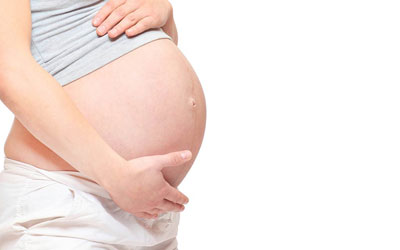High Risk Pregnancy
High risk Pregnancy Treatment in Lucknow
MBBS ( GOLDMEDALLIST ) MS ( OBS.GYNAE )
Dr. Amita Shukla is one of the best Gynecologist Obstetricians & Laparoscopic Surgeons in Lucknow, Uttar Pradesh. She specializes in the treatment of High-Risk Pregnancy, Infertility, PCOS/PCOD, Menopause, Advanced Laparoscopy, and Hysteroscopy, as well as Urogynecology treatment in India.
High-Risk Pregnancy: Understanding and Managing
Pregnancies can range from straightforward and low-risk, requiring routine antenatal care, to high-risk, which necessitates more intensive monitoring and care. The term "high-risk" is used to indicate that the pregnancy needs extra attention to ensure the health and safety of both mother and baby, not to alarm the parents.
High-risk pregnancies typically involve:
- More frequent antenatal visits for closer monitoring
- Referrals to specialists in maternal-fetal medicine, genetics, pediatrics, or other relevant fields
- Additional tests, ultrasounds, or procedures beyond routine prenatal screenings
- Care at tertiary hospitals with advanced facilities like level 3 nurseries and ICUs
Despite the term, many women with high-risk pregnancies deliver healthy babies with proper care and monitoring.
What Constitutes a High-Risk Pregnancy?
A pregnancy is considered high-risk if the mother has any of the following conditions:
- Age Factors: Under 17 or over 35
- Multiparity: Having five or more children
- Short Interpregnancy Interval: Becoming pregnant within three months of a previous delivery
- Lifestyle Choices: Smoking, alcohol consumption, or illegal drug use
- Underlying Medical Conditions: Obesity, diabetes, high blood pressure, epilepsy, anemia, infections, kidney disease, mental health conditions, cancer, heart disease, lupus, rheumatoid arthritis, inflammatory bowel disease, or autoimmune disorders
- Surgical History: Previous surgeries on the uterus, such as C-sections or fibroid removal
- Multiple Pregnancies: Carrying twins or more
- Genetic Factors: Personal or family history of birth defects
- Uterine or Placental Abnormalities: Personal or family history
- Complications in Prior Pregnancies: Issues such as recurrent miscarriages or preterm deliveries

Additionally, a low-risk pregnancy can become high-risk if complications develop, such as:
- Uterine, cervical, or placental problems
- Severe morning sickness (hyperemesis gravidarum)
- Rh (rhesus) sensitization
- Preterm labor
- Hypertension in pregnancy
- Placental abruption
- Gestational diabetes
- Cervical incompetence
- Placenta previa
- Intrauterine growth restriction (IUGR)/Fetal Growth Restriction (FGR)
- Polyhydramnios/oligohydramnios (excess or deficient amniotic fluid)
- Overdue pregnancy
Precautions and Management for High-Risk Pregnancy
Parents can take several steps to prevent or manage a high-risk pregnancy:
- Preconception Appointment: Meet with a gynecologist when planning a pregnancy.
- Care with Assisted Reproductive Technology (ART) or IVF: Use these technologies cautiously.
- Regular Prenatal Care: Do not miss regular pregnancy check-ups.
- Healthy Diet: Eat nutritious foods.
- Weight Management: Gain weight wisely according to medical advice.
- Avoid Risky Substances: Stay away from alcohol, smoking, and drugs.
- Infection Prevention: Avoid contact with people who have infections.
Warning Signs to Watch For
It is crucial to report the following signs to your doctor immediately:
- Vaginal bleeding
- Fever, diarrhea, or persistent vomiting
- Pain or burning sensation during urination
- Pain, cramping, or pelvic pressure in the lower abdomen
- Watery vaginal discharge, either in a gush or a trickle
- Regular or frequent contractions, indicating tightening in the abdomen
- Decreased fetal movement
- Vision changes, such as blurred vision
- Sudden swelling of the face, hands, or feet
- Persistent headaches
By staying vigilant and following medical advice, women with high-risk pregnancies can improve their chances of having a successful delivery and a healthy baby.


